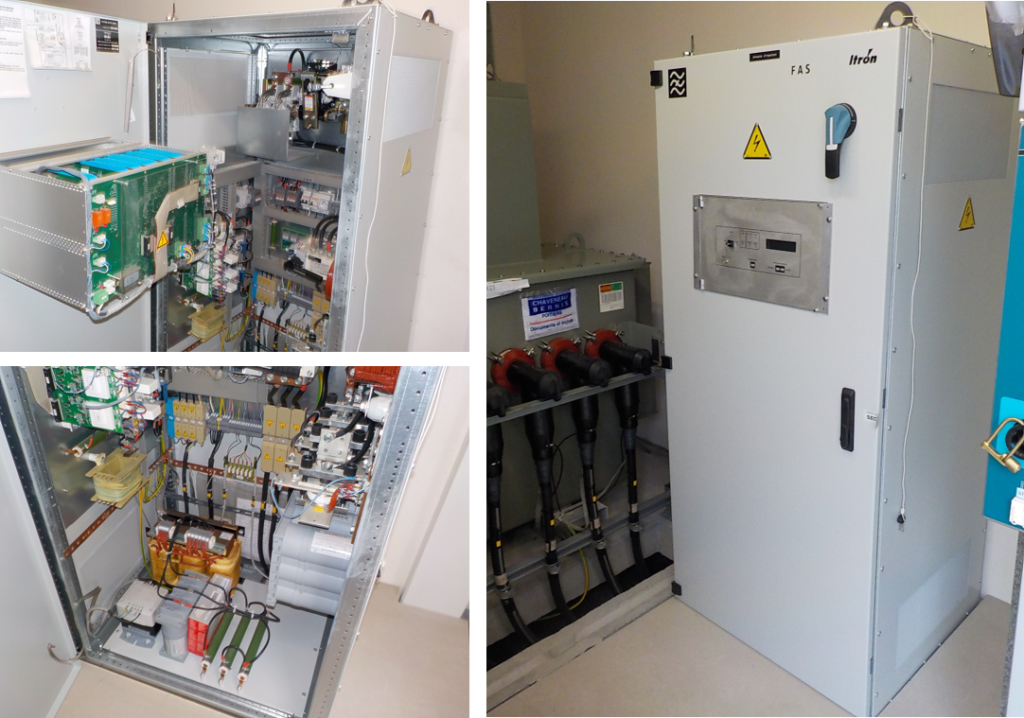We have often seen cases when an active filter had to be installed during operation of a wind farm. This article aims to demonstrate their purpose and benefits.
From high voltage centers, grid operators use a remote system to amend the tariff in energy meters. When a tariff signal is issued, each simple voltage imposed by the three-phase network is the superposition of the sinusoidal voltage V50 Hz and of a square alternating voltage V175 Hz.
Some grid connection configurations can have a negative impact on those tariff signal. This is for example the case when new autonomous producers (wind turbine, small hydro or gas station) want to connect their unit to the grid.

For the operating wind farm, it has to be carefully checked that this new disposition doesn’t affect the tariff order. This can be done by estimating upstream & downstream 175 Hz signals of the new installation. If after proper control upstream & downstream levels overpass the thresholds, an active filter will need to be implemented on the operating wind farm.
If tariff signal is perturbated due to a new installation, the new producer will be required to install an active filter or at least, participate in financing it. The amount of the financial participations depends on the loss of signal it generates.
Greensolver, technical expert for wind & solar assets, can advise any operator on how to implement an active filter on operating or ready to build wind farm.

